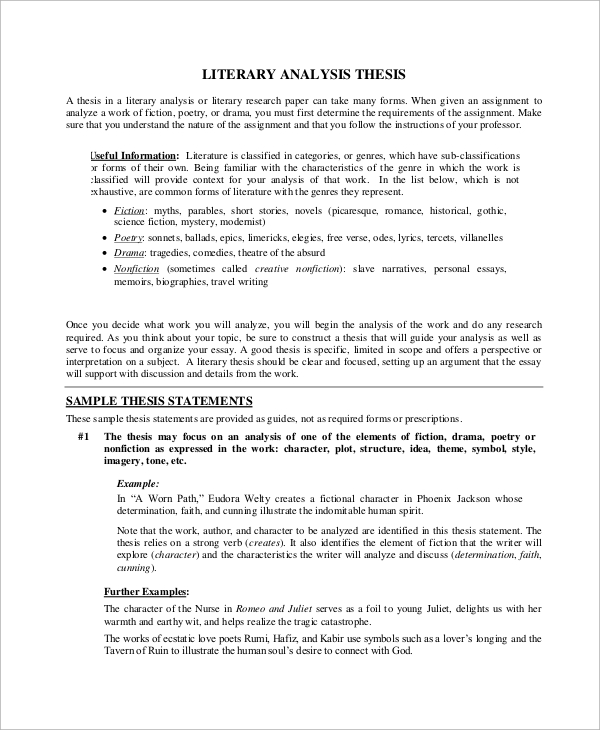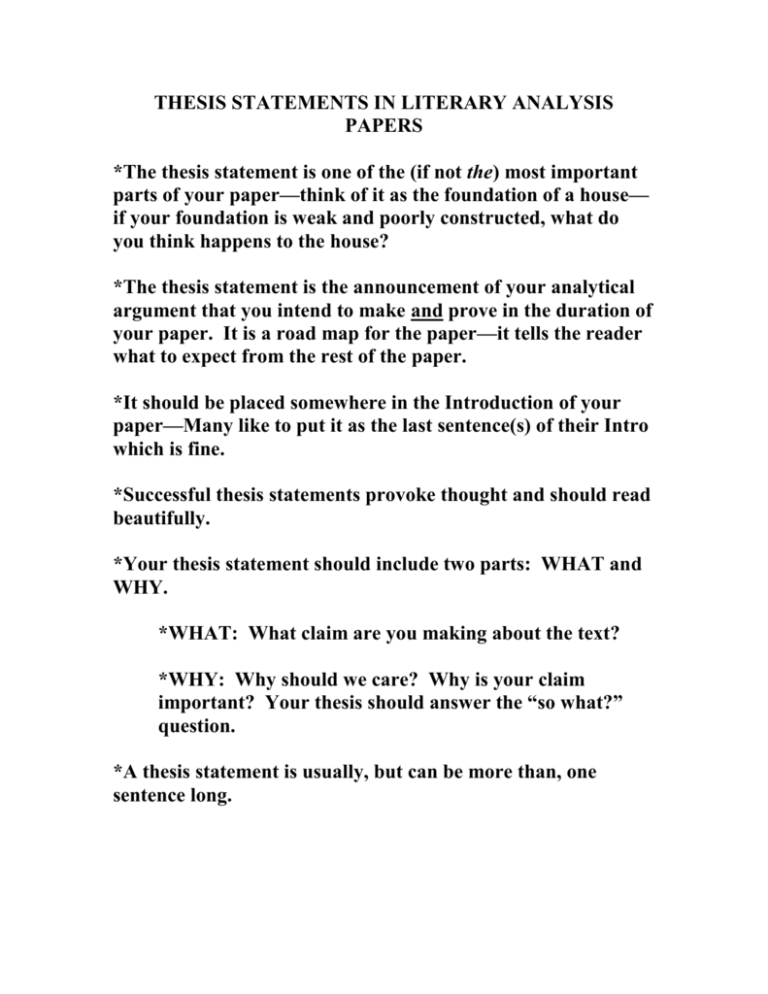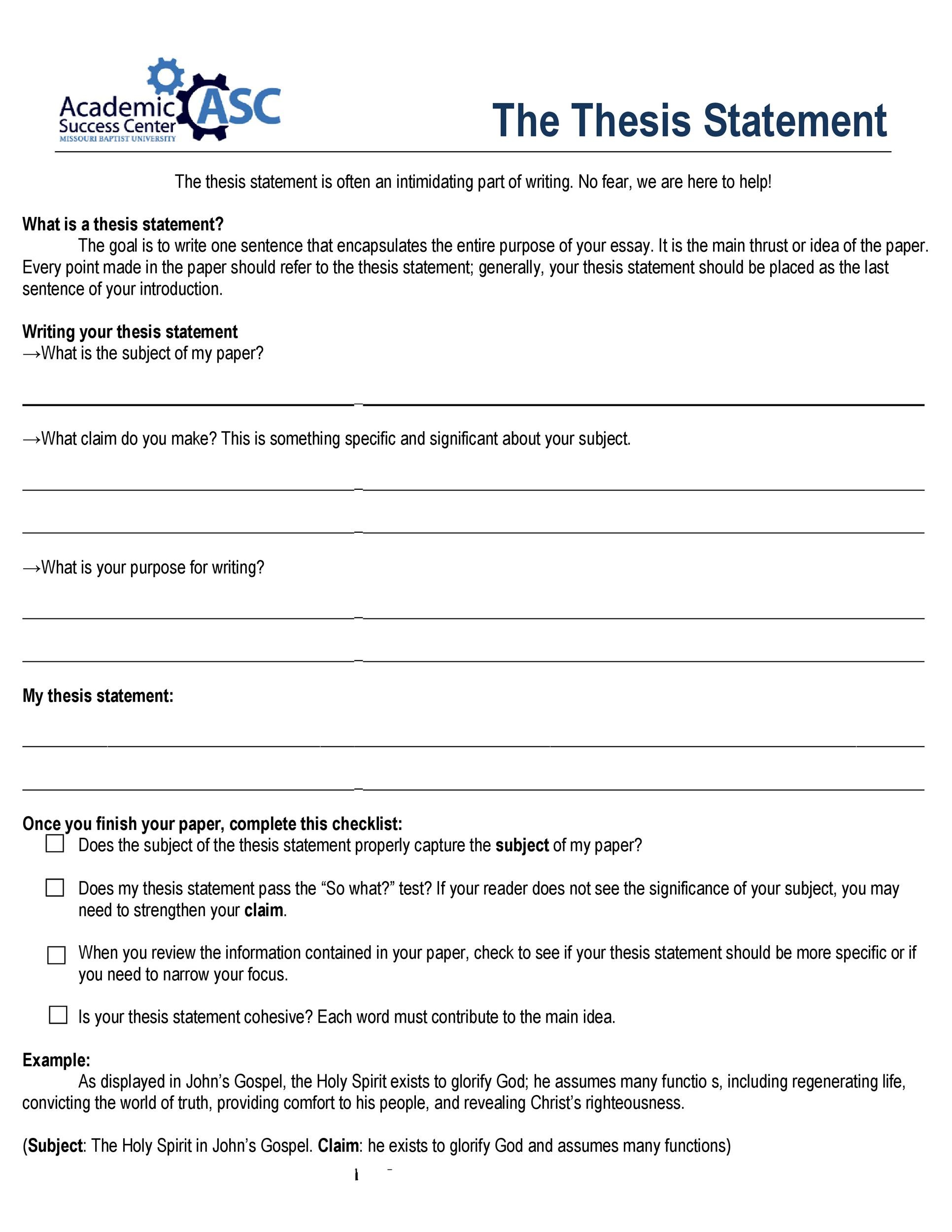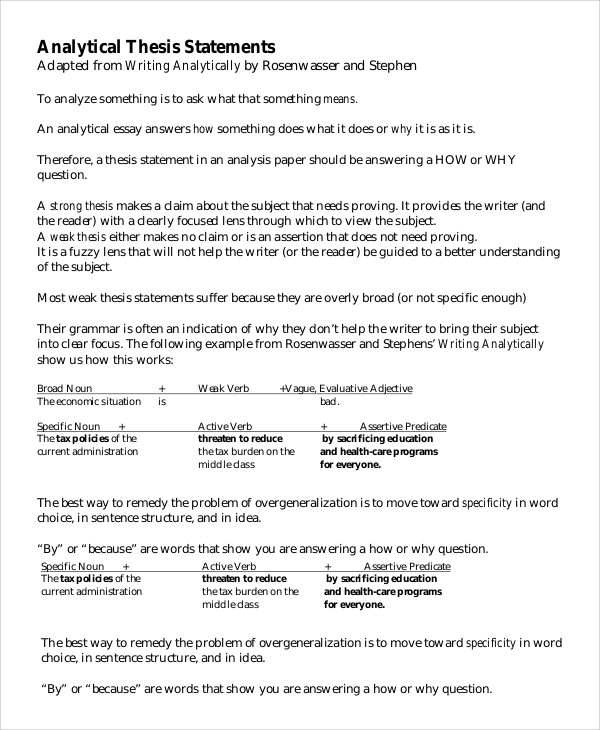The Thesis Statement Template for Literary Analysis You Need to Get an A
Landing that coveted “A” in your literary analysis essay hinges on a strong foundation: a compelling thesis statement. This isn’t just a summary of the plot; it’s a concise, arguable claim that guides your entire analysis and demonstrates your critical thinking skills. This article provides you with the template and strategies to craft a thesis statement that will impress your professor and earn you top marks.
Understanding the Purpose of a Thesis Statement in Literary Analysis
Before diving into templates, let’s clarify the function of a thesis statement. It’s the central argument of your essay, the single most important sentence. It tells the reader:
- What literary work you’re analyzing: (e.g., Shakespeare’s Hamlet, Toni Morrison’s Beloved)
- What specific aspect you’re focusing on: (e.g., character development, symbolism, themes, narrative structure)
- Your unique interpretation or argument: This is the crucial part. It’s your claim about the text, not a simple observation.
Avoid vague statements like “Hamlet is a complex play.” Instead, aim for something specific and arguable, like “Hamlet’s procrastination stems from his profound existential crisis, ultimately leading to tragic consequences.”
The Winning Thesis Statement Template: A Step-by-Step Approach
The best template adapts to your specific analysis, but a solid structure generally follows this pattern:
[Literary Work] + [Specific Aspect] + [Your Argument/Interpretation] = A+ Thesis Statement
Let’s break it down further:
- [Literary Work]: Clearly identify the text you are analyzing. Be precise.
- [Specific Aspect]: Choose a focused element. Don’t try to analyze everything. Examples include:
- Character development: How does a character change throughout the story?
- Symbolism: What do specific objects, images, or events represent?
- Themes: What are the major underlying ideas explored in the work?
- Narrative structure: How does the author’s choice of structure affect the meaning?
- Literary devices: How does the author use specific techniques (metaphor, imagery, etc.) to achieve a particular effect?
- [Your Argument/Interpretation]: This is your original insight. It’s the core of your analysis and should be debatable. This is where you present your unique perspective on the chosen aspect.
Example Thesis Statements Using the Template
Let’s apply the template to different literary works and aspects:
- Example 1 (Character Development): “In To Kill a Mockingbird, Scout Finch’s journey from naive innocence to compassionate understanding is fueled by her exposure to racial injustice in her community.”
- Example 2 (Symbolism): “The recurring motif of the scarlet letter ‘A’ in Nathaniel Hawthorne’s The Scarlet Letter symbolizes not only adultery but also the societal hypocrisy and the burden of shame.”
- Example 3 (Theme): “Shakespeare uses the contrasting characters of Macbeth and Banquo in Macbeth to explore the corrupting influence of ambition and the importance of moral integrity.”
Refining Your Thesis Statement: Tips for Success
- Be concise: Aim for one to two sentences.
- Be specific: Avoid vague language.
- Be arguable: Your statement should be something that can be debated or challenged.
- Be clear and focused: Your thesis should directly reflect the argument you’ll develop in your essay.
- Revise and refine: Don’t be afraid to rework your thesis as you develop your essay.
Conclusion: Mastering the Thesis Statement for Literary Analysis Success
A well-crafted thesis statement is the cornerstone of a successful literary analysis essay. By utilizing the template provided and following the tips outlined above, you can create a compelling argument that will guide your analysis and pave the way for an “A” grade. Remember to focus, be specific, and always support your claim with evidence from the text.
Frequently Asked Questions (FAQs)
Q1: Can my thesis statement be more than two sentences?
A1: While one to two sentences are ideal for clarity and conciseness, a slightly longer thesis might be acceptable depending on the complexity of your argument. However, strive for brevity and clarity above all.
Q2: What if I’m unsure of my argument?
A2: Start by brainstorming ideas and outlining your potential interpretations. Research secondary sources to see what other scholars have said about the text. Your argument will emerge as you develop your analysis.
Q3: Can I change my thesis statement after I’ve started writing?
A3: Absolutely. Your thesis is a working hypothesis. As you research and write, your understanding of the text may evolve, requiring you to refine your thesis.
Q4: Is it okay to use “I” in my thesis statement?
A4: Generally, it’s best to avoid using “I” in your thesis statement as it can sound less authoritative. Focus on presenting your argument objectively.
Q5: How do I know if my thesis is strong enough?
A5: Ask yourself: Is it specific? Is it arguable? Does it accurately reflect the focus of my essay? If you can answer yes to these questions, you’re on the right track.




